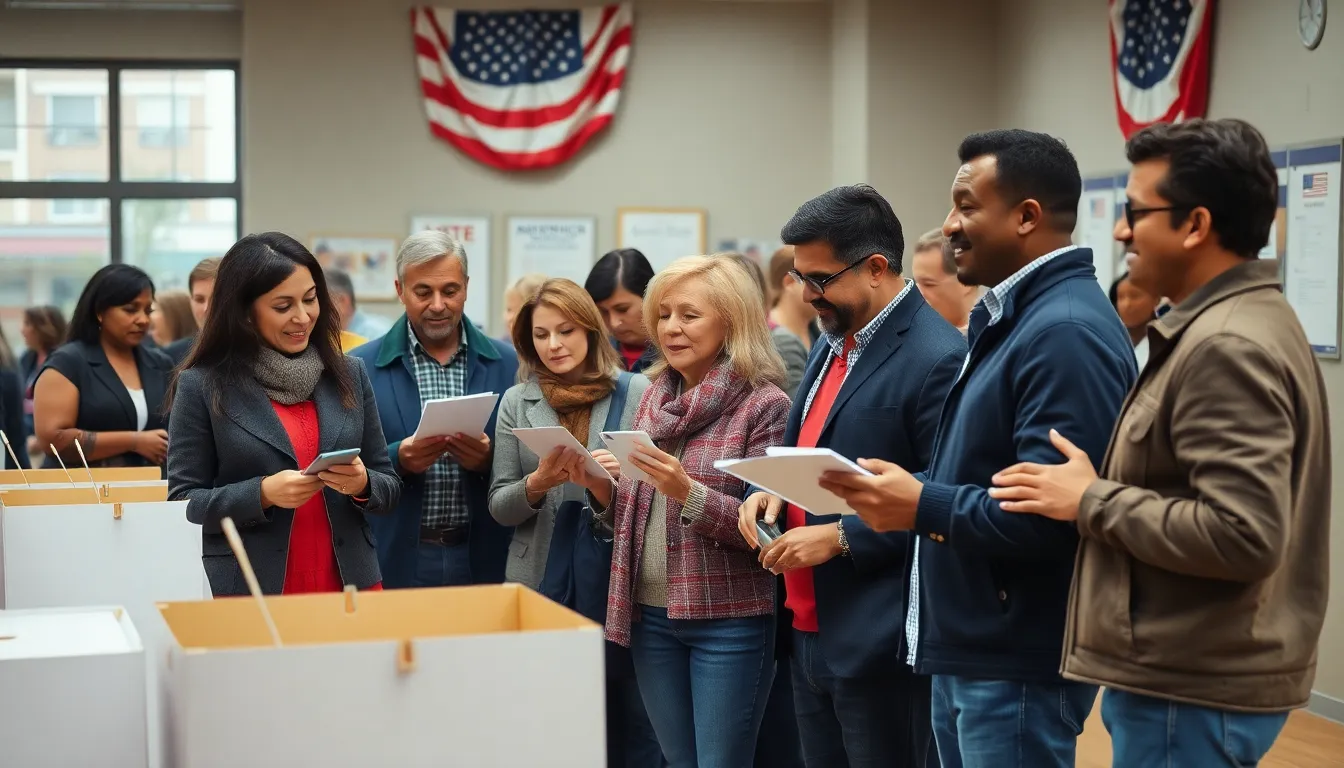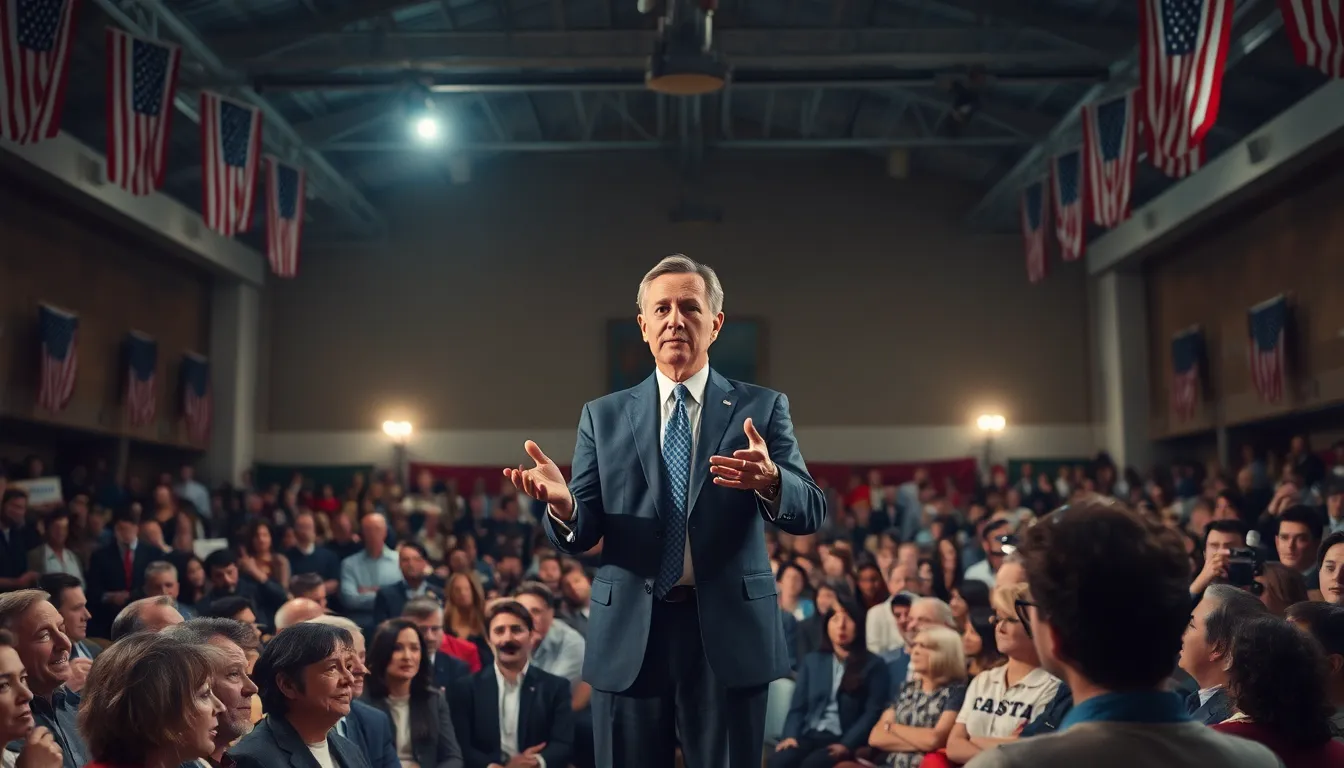Table of Contents
TogglePolitics can be a wild ride, filled with drama, intrigue, and a sprinkle of absurdity. From the quirky quirks of politicians to the jaw-dropping facts that shape our world, understanding the political landscape is anything but boring. Imagine diving into a treasure trove of political gems that not only inform but also entertain.
Overview of Political Facts
Politics encompasses a multitude of facts that reveal critical insights into governance. Dynamics within political systems often shape societal behavior and decision-making. Election statistics illustrate trends that can influence future opportunities and challenges. A recent study showed that voter turnout in the United States reached approximately 66.8% for the 2020 presidential election, the highest rate in 120 years.
Political party structures possess unique characteristics that define their influence. Various parties represent distinct ideological movements, ranging from conservatism to progressivism. In 2022, the Democratic Party held 222 seats while the Republican Party held 213 seats in the House of Representatives, demonstrating a closely contested political environment.
Candidates often utilize data to craft their campaigns. Such strategies include analyzing demographics and preferences to tailor messages effectively. Polling data revealed that 57% of voters prioritize economic issues when deciding on candidates.
Legislative procedures determine how laws are passed. Knowledge of these processes enhances understanding of political outcomes. For instance, in the United States, a bill must pass through both the House and the Senate before reaching the President for approval.
The role of media in politics cannot be overlooked. Influence from news outlets often shapes public perception and voter behavior. Studies confirm that 78% of voters regularly consume political news, emphasizing the media’s stature as a critical player in the electoral process.
Exploring these political facts provides a foundation for understanding the complex landscape of governance. Engaging with facts and data enhances awareness of how policies affect daily life.
Importance of Political Facts

Political facts significantly influence society, shaping perspectives and guiding actions. Engaging with accurate political information deepens understanding of governance.
Impact on Public Opinion
Public opinion hinges on reliable political facts. Voter turnout during the 2020 U.S. presidential election was 66.8%, showcasing citizen engagement. When citizens consume political news, which 78% of voters do regularly, their opinions become informed. Polling reveals that 57% of voters prioritize economic issues, highlighting how specific facts can sway public sentiment. As perception shifts, so do political strategies, compelling candidates to adapt their messages based on the electorate’s priorities.
Role in Policy Making
Policy making relies heavily on accurate political facts. Understanding legislative procedures is essential, as bills navigate through both the House and Senate before reaching the President. Data-driven decisions form the backbone of effective governance. For instance, the Democratic Party controlled 222 seats while the Republican Party held 213 in 2022, underscoring the importance of party dynamics in shaping policy. Facts about societal needs drive legislative agendas, ensuring that policies reflect the preferences and priorities of constituents.
Common Misconceptions About Political Facts
Misunderstandings often surround political facts. Clarifying these misconceptions enhances political discourse and public understanding.
Confirmation Bias
Confirmation bias significantly impacts how people interpret political facts. This cognitive phenomenon leads individuals to favor information that aligns with their existing beliefs. It causes selective exposure to news and data, resulting in an echo chamber effect. For instance, a voter focused on a particular party’s viewpoint may neglect opposing views or reliable data that contradicts their beliefs. Awareness of this bias encourages individuals to seek diverse sources of information, contributing to a more informed electorate. Engaging with various perspectives allows for a richer understanding of political issues and mitigates polarized views.
Media Influence
Media influence plays a crucial role in shaping perceptions of political facts. Given that 78% of voters regularly consume political news, the sources and framing of stories significantly affect public opinion. News outlets often prioritize sensationalism over factual reporting, leading to misconceptions. For example, varying interpretations of the same event can create confusion among the public. Understanding the media’s role helps individuals critically assess the information presented. Awareness of potential biases in news coverage enables voters to differentiate between facts and opinion, fostering informed decision-making during elections.
How to Verify Political Facts
Verifying political facts enhances understanding and promotes informed decision-making. Engaging with reliable sources ensures accurate information.
Fact-Checking Organizations
Fact-checking organizations play a critical role in assessing the truthfulness of political claims. Independent entities like PolitiFact, FactCheck.org, and Snopes examine statements made by politicians and media outlets. Each organization uses rigorous methodologies to provide transparency in their assessments. For example, PolitiFact offers a “Truth-O-Meter” rating system that evaluates statements based on factual accuracy. Increasingly, these organizations provide context, which helps the public understand the nuances of political discourse. By utilizing their findings, citizens can better navigate complex political landscapes and avoid misinformation.
Tools and Resources
Various tools and resources assist in verifying political facts efficiently. Websites such as Media Bias/Fact Check provide insights into the political leanings of news organizations. These resources help users evaluate the reliability of different media sources. Additionally, search engines and databases like Google Scholar or JSTOR allow access to academic studies and data related to political issues. Social media platforms increasingly integrate fact-checking alerts to combat misinformation. Utilizing these tools fosters a more informed public, enabling voters to engage critically with political information and assessments.
Navigating the intricate world of politics requires a commitment to understanding the facts that underpin it. Engaging with accurate political information empowers citizens to make informed choices and fosters a more robust democracy. As individuals seek diverse sources and verify claims, they contribute to a more enlightened electorate.
The influence of political facts extends beyond mere statistics; it shapes public perception and drives policy-making. By recognizing the importance of critical thinking and fact-checking, voters can break free from echo chambers and approach political discourse with clarity. Ultimately, a well-informed public is essential for a thriving democratic society, where every voice can contribute to meaningful change.




